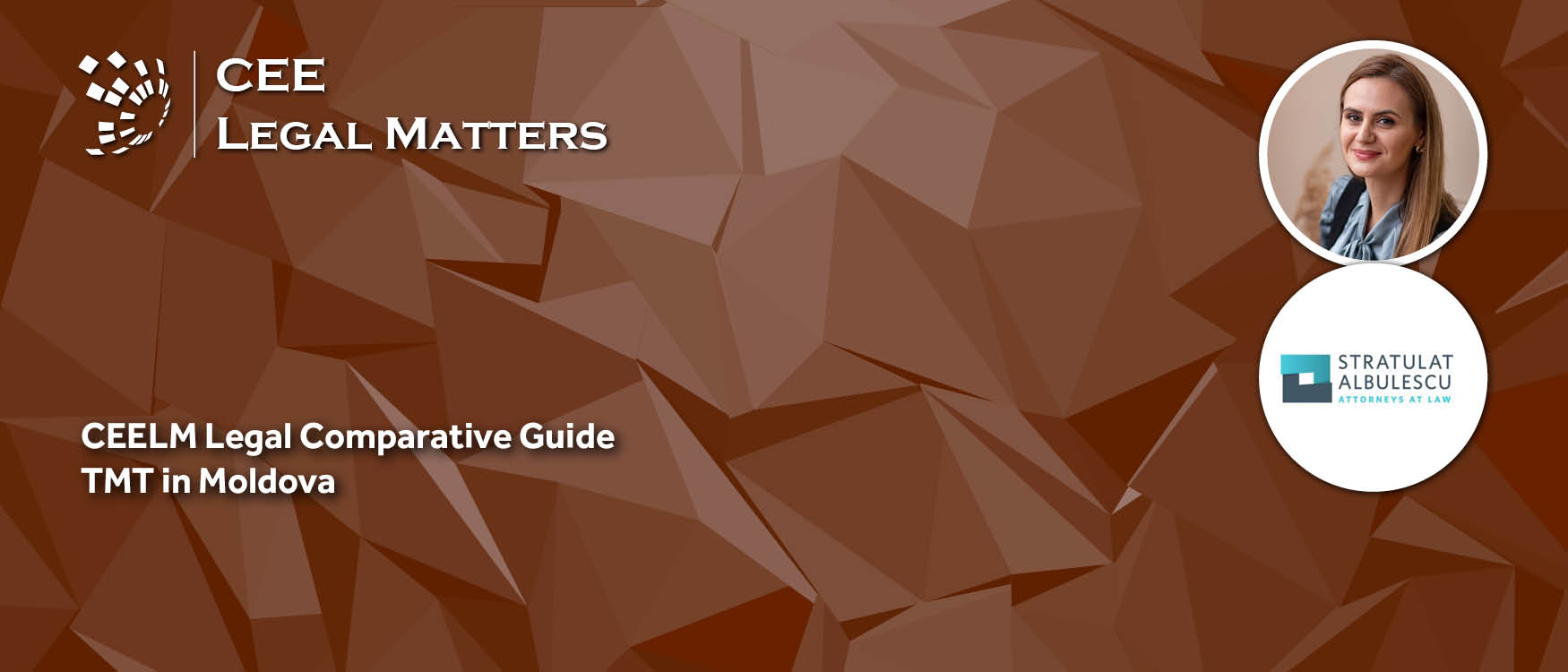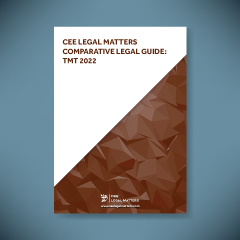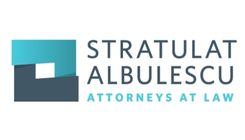Contributed by Stratulat Albulescu.
1. Legal framework for writing and electronic contracts
a. What are the requirements in your jurisdiction to consider a document to be in writing? Are there any formal/technical requirements?
According to Article 321 (Written form of a legal act) of the Civil Code of the Republic of Moldova, a written document is a document on which a signature is applied. If according to the law or by the parties’ agreement a legal document must be concluded in writing, it may be concluded by drafting a single document on which the parties apply their signatures; this may be achieved via an exchange of letters, telegrams, electronic documents signed by the party who sends the same.
A written document may be validly concluded in an electronic form only if it is signed with an advanced qualified signature of the party(ies) who concludes (conclude) the document, and if the parties or the law do not require other types of an electronic signature to be applied, as per Article 318 (Electronic form of a legal act) of the Civil Code of the Republic of Moldova. At the same time, Law no. 124/2022 on electronic identification and trusted services (which shall enter into force on December 10, 2022) gives a definition of an electronic document, which represents content in electronic form, in particular text form or sound, visual or audio-visual recording on which was applied an electronic signature or an electronic seal. The Civil code uses the phrase “qualified advanced signature” which was used in the former electronic documents Law no. 91/2014, currently repealed. We expect that in near future the Civil Code will be revised to reflect the terms used in Law no. 124/2022, i.e., “qualified signature”.
b. Are electronic documents [e.g., an email] per se considered to be in writing under your law?
A document in electronic form, generally, would be considered as being provided in writing only if it meets all requirements prescribed by the law. As mentioned above in p.1 (a) the electronic documents must be signed with an advanced qualified signature of the party(ies) who concludes (conclude) the document, and if the parties or the law do not require other types of an electronic signature to be applied, as per Article 318 (Electronic form of a legal act) of the Civil Code of the Republic of Moldova. Thus, an email would not be considered per se a document in writing under Moldovan legislation unless it is signed using an advanced qualified signature (see our notes under p. 1 (a) above).
c. What probative power paper and/or electronic documents have that are to be considered in writing?
A paper document must be signed using a holographic signature (hand signature) to produce legal effects.
An electronic document is equaled according to its probative value with written evidence or material means of evidence and cannot be rejected as evidence only for the reason that it is concluded in an electronic form.
As mentioned, an electronic document signed with a qualified electronic signature is assimilated, as to its effects, with a similar document on paper, signed with a holographic signature.
An electronic document signed with a different type of electronic signature than the qualified signature is assimilated, according to its effects, with a similar document on paper, signed with a holographic signature, only in specifically regulated situations by the law, or based on an agreement of the parties related to the application of electronic signatures and seals, provided they include provisions on the verification of the electronic signature and confidentiality and liability obligations for the parties.
d. What are the general rules and requirements to conclude a contract electronically?
According to Moldovan legislation, an electronic contract is not a particular type of contract; the use of an electronic form may concern the form of the contract or the modality in which the contract is concluded (i.e., by electronic means).
A contract in electronic form must comply with all the above-mentioned requirements prescribed for an electronic document.
As to contracts concluded via electronic means, Article 319 of the Civil Code of the Republic of Moldova sets out that legal acts may be concluded via any electronic means. However, if a party to the contract does not use an advanced qualified electronic signature (i.e., a qualified electronic signature under Law no. 124/2022) to sign a contract, the party’s consent is presumed to be valid until that party challenges her consent. This rule will benefit e-commerce, where legal acts concluded through electronic means, where the party is not applying an electronic signature, are commonly used.
Additionally, to boost e-commerce, Civil Code has also regulated the concept of distance contracts (Article 1013), which are any contract negotiated and concluded between a professional and a consumer within a remote sales or service provision system, without a simultaneous presence of the professional and the consumer, using exclusively one or more remote communication means before and at the time of contract conclusion, including any order made by the consumer which would produce binding effects on them.
Law no. 284/2004 on electronic commerce adds that contracts concluded by electronic means complying with the requirements of the Moldovan Civil Code are equivalent to the written contracts signed by the parties by hand (Article 24).
e. Are there any sector-specific rules that define further requirements to conclude contracts electronically [e.g., contracting via an authenticated electronic channel, contracting via video chat, etc.]?
Generally, there are no specific requirements in addition to those mentioned above. The law contemplates the entry into contracts in electronic form using various communication means such as e-mails, text messages, or other authenticated electronic channels. These types of contracts include those usually concluded with consumers by micro-finance companies offering small loans, or in e-commerce.
Specific requirements are mostly related to the extent and content of the information related to these contracts, where the professional shall make the information available to the consumer in a form appropriate to the communication means used for entry into the contract, using clear and intelligible language.
Under Moldovan legislation, distance contracts may be also concluded via phone call, e.g., a professional may call the consumer in order to conclude a contract. In this case, the professional’s representative must introduce the professional at the beginning of the conversation and specify the commercial scope of the call. During the call, the representative of the professional shall confirm the offer presented to the consumer, whose commitment begins only after he has signed the offer or sent his consent in writing. These confirmations must meet the requirements of durable media.
Article 1020 of the Civil Code prescribes that if the agreement is to be concluded through electronic means, the professional is required, before the other party makes a bid or accepts an offer, to provide information on the following: (i) the technical steps to be taken to enter into the agreement; (ii) if the professional will generate a document representing the agreement and if the document would be accessible (i.e., to the parties); (iii) the technical means for identifying and reviewing errors in entering the data before the other party makes a bid or accepts an offer; (iv) the language in which the agreement may be concluded; and (v) all contractual clauses. Concerning the last obligation, the professional shall ensure that the contractual clauses are available in textual form.
2. Digital signatures
a. Are there any laws regulating the use of digital signatures in your jurisdiction?
Particular regulations related to electronic signatures have been since 2014 with the adoption of Law no. 91/2014 on electronic signature and electronic documents. This law has been recently abrogated with the adoption of a new Law no. 124/2022 on electronic identification and trusted services (already mentioned above). This law shall enter into force on December 10, 2022.
b. Is there any difference between the different types of digital signatures in your jurisdiction?
Law no. 124/2022 on electronic identification and trusted services regulates two types of electronic signatures, i.e., advanced and qualified electronic signatures. Law no. 124/2022 sets out different requirements for each type of signature and restrictions when a certain or another type of signature might be applied.
An electronic signature is considered advanced subject to meeting the requirements set out by the law, i.e., (i) the signature refers exclusively to the holder; (ii) the signature allows the identification of the holder; (iii) the signature is created using electronic signature creation data, which the signatory is able to use with an enhanced level of confidence, under their sole control; and (iv) the signature is linked to the data to which they relate in such a way that any subsequent changes to such data may be detected.
In respect to qualified electronic signatures, they also shall meet a few requirements mandatory under the law as follows: (i) rely on a qualified public key certificate issued by a qualified trust service provider; and (ii) are created by an electronic signature device and are verified by means of the electronic signature verification device and/or product, which comply with the requirements of the law. Specific requirements are laid down in relation to qualified certificates as well, which must include (i) a machine-readable mention that the certificate is issued as a qualified certificate for electronic signatures; (ii) the issuing trust services provider identification data; (iii) signatory identification data; (iv) validation data for the electronic signatures matching the signatures creation data; (v) date and hour when the certificate becomes valid and ceases to be valid, respectively; (vi) sole registration number of the certificate; (vii) verification data for the certificate matching the certificate creation data; and (viii) the qualified electronic signature of the issuing trust services provider.
As mentioned, there are certain limitations in using advanced electronic signatures, and the law prescribes it exhaustively. Thus, advanced electronic signatures may not be applied on (i) electronic documents comprising information classified as a state secret, except that it may be allowed to sign electronic documents comprising information classified as state secret only with an advanced electronic signature by the person whose identity and quality constitutes a state secret, under Law no. 245/2008 on state secret, where such a person works for the Intelligence and Security Service, the National Anticorruption Center, and the Ministry of Internal Affairs within their system of electronic documents circulation; (ii) on electronic documents issued in legal relationships between public institutions and natural persons and non-public legal entities.
c. What probative power each type of digital signature has in your country?
Electronic signatures, regardless of their degree of protection (i.e., advanced or qualified), produce legal effects and are accepted as evidence including in judicial proceedings, even if: (i) they are presented in electronic form; or (ii) they do not rely on a certificate issued by a trust services provider; or (iii) do not rely on a qualified public key certificate; or (iv) are not created by means of a creating electronic signatures device.
A qualified signature has a stronger probative power, as it is stated expressly by Law no. 124/2022 where it has the same legal value as a holographic signature. Qualified electronic signatures enjoy the legal presumption of integrity and correctness of the origin of the data to which they refer.
d. Are there any specific groups of people that are required to have digital signatures [e.g., attorneys, notaries, government officials, etc.]?
There are no specific groups of people that are mandated to have or use digital signatures. The use of electronic signatures is not yet mandated in Moldova, generally.
Attorneys, notaries, or bailiffs may rely on electronic signatures to ease certain processes (to fill a request in court, to request official information from public authorities, or for reporting purposes, etc.), or to have access to public electronic services. Some governmental officials use electronic signatures to sign annual declarations on wealth and personal interests; electronic documents within the internal and intra-institutional circulation of documents (within their respective public entities); or administrative procedures in response to electronic petitions, etc.
e. Are non-personalized digital stamps recognized in your country with probative power [e.g., digital stamps used by companies, government, or administrative bodies]?
Law no. 124/2022 on electronic identification and trusted services regulates electronic time stamps for the first time in Moldova. Qualified electronic time stamps are issued by trust services providers and meet the following requirements: (i) provides a connection between the date and hour and other dates excluding in a reasonable manner the risk to alter the data without detection; (ii) rely on a time source that is accurate and is connected to the universal time; (iii) rely on the qualified electronic signature or seal of the trust services provider or on the advanced electronic signature or seal of the trust services provider headquartered in another country, which benefits from the recognition procedure set out in Law no. 124/2022. Requirements for advanced electronic time stamps are set out by trust services providers.
Electronic time stamps shall not be denied legal effect and admissibility as evidence in legal proceedings solely on the grounds that it is in an electronic form or that it does not meet the requirements of the qualified electronic time stamp. At the same time, a qualified electronic time stamp shall enjoy the presumption of the accuracy of the date and the time it indicates and the integrity of the data to which the date and time are bound.
Moldovan law also regulates the use of electronic seals in a similar manner to electronic signatures; our notes in Sections 2.b. and 2.c. in relation to the requirements and probative power of advanced and qualified electronic signatures apply mutatis mutandis to advanced and qualified electronic seals.
3. Digital archiving
a. Are there any laws regulating digital archives and digital archiving in your jurisdiction?
Moldova is in the yearly stages of digitalizing its national archives. So far, there are very few regulations on digital archives.
Law no. 124/2022 defines secured electronic archiving as a structured repository of electronic documents ensuring the confidentiality, non-repudiation, and integrity of the documents and guarantees the probatory value of the electronic documents over time. Law no. 124/2022 includes further provisions on the evidence of electronic documents (Article 49) and on the storage of electronic documents (Article 50), where entities that rely on the electronic circulation of documents are obliged to keep the originals of electronic documents in a way that allows verification of their authenticity. Please see the definition of electronic documents in Section 1.
The retention terms for electronic documents are identical to the retention terms for paper documents. Electronic documents are archived in digital archives. The Government shall establish the categories of electronic documents for storage in secured digital archives. As mentioned above, Law no. 124/2022 on electronic identification and trusted services shall enter into force by December 2022, the secondary regulation is yet to be drafted and approved by the Government, inclusively those related to digital archives, and categories of electronic documents mandatory to be archived in secured digital archives.
b. What are the main legal and technical requirements to digitally archive documents?
Not yet available.
c. Is there any difference in your country’s regulations between the digital archiving of paper and electronic documents?
Apart from retention periods for documents, which are the same irrespective of whether the documents are in paper or in electronic form, we expect that there would be different regulations for the digital archiving of paper and electronic documents, respectively. As for paper documents, there are special regulations (albeit old) such as Law no. 880/1992 on Archival Fund of the Republic of Moldova, and Order no. 57/2016 of the State Service of Archives on indicator of standard documents and deadlines of their storage for public administration bodies, institutions, organizations and enterprises of the Republic of Moldova and the instruction on the application of the indicator. At the same time, a draft of a Government Decision on approving the Concept of an informational system Electronic Archive (e-Archive) is currently under public discussion.
With respect to digital archives, the Government shall regulate secondary regulations under Law no. 124/2022, and amend other relevant regulations.
d. Is any third party required to participate in the process of digital archiving in your country [e.g., a trusted service provider, government / administrative bodies, etc.]?
Not yet available.
e. Are there any sector-specific requirements and rules for digital archiving [e.g., archiving both the software and the related data to retrieve information in the financial sector]?
There are no sector-specific requirements and rules for digital archiving (as Law no.124/2022 has yet to enter into force, and respectively secondary regulations are to be drafted). The legal framework allows electronically archiving documents more as an additional option to paper document archives. And, the professionals (such as notaries, bailiffs, attorneys, etc.) are obliged by general rules to ensure integrity, security of data, confidentiality of information, etc.
For example, reporting entities under anti-money laundering rules are obliged to keep and store electronically all the data on suspected transactions for five years. As for electronic archives, they shall be kept under safe conditions and operative availability, to be sufficient to allow the reconstruction of each activity or transaction in such a way as to serve afterward as evidence in criminal, contravention, and other legal proceedings.




